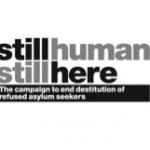 In a joint submission for the Universal Periodic Review of the United Kingdom, Edmund Rice International joined with Franciscans International, VIVAT International and United for Change – a coalition of fifteen community and faith-based support groups for asylum seekers and refugees (including the Christian Brothers) in the Greater Manchester area – to recommend that the UK government address the plight of the more than 280,000 asylum seekers living in the UK whose claims for asylum had been rejected.
In a joint submission for the Universal Periodic Review of the United Kingdom, Edmund Rice International joined with Franciscans International, VIVAT International and United for Change – a coalition of fifteen community and faith-based support groups for asylum seekers and refugees (including the Christian Brothers) in the Greater Manchester area – to recommend that the UK government address the plight of the more than 280,000 asylum seekers living in the UK whose claims for asylum had been rejected.
‘Failed asylum seekers’ are often totally dependent for shelter and food on the goodwill and accident of friends and faith groups, and on food parcels and night shelters provided by charities and voluntary sector relief organisations. As they are not permitted to work and receive no government assistance, they are literally penniless, and many are forced into begging, stealing, prostitution or abusive and exploitative work situations in order to survive.
Despite the consequent loss of their human dignity, malnourishment and ill health, despite being denied any hope for the future and the possibility of rebuilding a life, and despite frequently suffering from a range of mental health problems, including post-traumatic stress disorder and disorientation, due to the experiences of torture and persecution from which they have fled, failed asylum seekers still prefer living in destitution in the UK to returning to persecution, arbitrary violence, imprisonment, torture, or death, or, at the very least homelessness and poverty, in their country of origin.
The submission claims that the enforced destitution experienced by those whose applications for asylum are rejected, is a deliberate instrument of public policy which is incompatible with the UK’s obligations under international human rights conventions.
The submission also criticises the process used in assessing the credibility of claims for asylum, which it is believed operates under a politically-driven imperative to maximise the volume of refusals. Whilst this results in extensive injustice, it is not the process but the results of the implementation of this policy that is the focus of the joint submission.